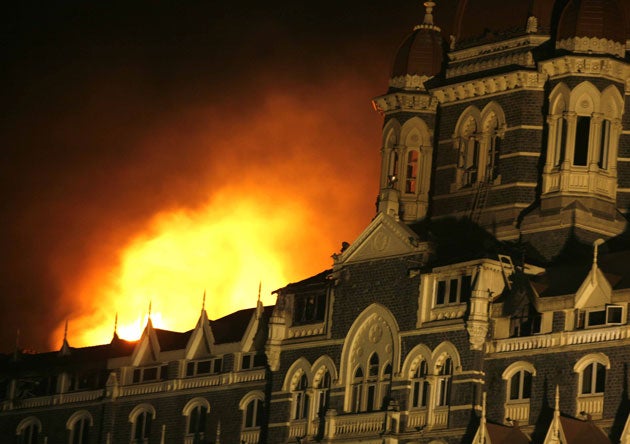Pakistan says 124 arrested over Mumbai

Pakistan today said security forces had closed five training camps run by Lashkar-e-Taiba, the group blamed for the Mumbai attack, and arrested 124 of its leaders and those of a related charity.
Tension between nuclear-armed neighbours Pakistan and India has been simmering since the late November attack in which gunmen killed 179 people in Mumbai, India's financial capital.
India has become increasingly frustrated with what it sees as Pakistan's lack of action in response. Pakistan has been angered by an Indian suggestion Pakistani state agencies were involved and what it sees as repeated Indian hints of military action.
Pakistan condemned the attack, denied involvement of any of its agencies and offered cooperation to India in the investigation.
Pakistan's top Interior Ministry official, Rehman Malik, repeated that offer today as he outlined action the government had taken against the LeT and an Islamic charity the United Nations says is an LeT front.
"We have arrested a total (of) 124," Malik told a news conference, adding those arrested were "mid-level, lower-mid-level and their top leadership".
Lashkar-e-Taiba (LeT) was banned in Pakistan in 2002 but the United Nations says it has been using its charity wing, the Jamaat-ud-Dawa (JuD), as a front for its militant activities.
JuD was added to a UN list of terrorist organisations days after the Mumbai attacks.
Hafiz Saeed, founder of LeT and head of JuD, was put under house arrest soon after that.
"Activities ceased"
Malik said the government had closed 20 offices, 87 schools and several religious seminaries, or madrasas, run by JuD. Authorities had also banned its publications and blocked six group Websites, he said.
"All activities of that particular organisation stand ceased," Malik said.
The Indian government and military have said all options are open in their response to the Mumbai attack, which Pakistan has interpreted as a veiled threat of a military response.
But analysts say war is very unlikely.
A US State Department spokesman yesterday said both sides had moved some troops but tension had not escalated to the point of threatening peace and stability.
Malik said he wanted India to allow Pakistani investigators to help in the investigation.
"In such matters we need interaction and I request my counterpart please make the arrangements ... where our investigators can interact with each other. Interaction will bring quick results," Malik said.
India has provided Pakistan data from satellite phones used by the attackers and what it describes as the confession of a surviving gunman, part of a dossier of it says is evidence.
Pakistan has said the dossier India provided did not amount to evidence and the information needed to be carefully examined.
Join our commenting forum
Join thought-provoking conversations, follow other Independent readers and see their replies
Comments